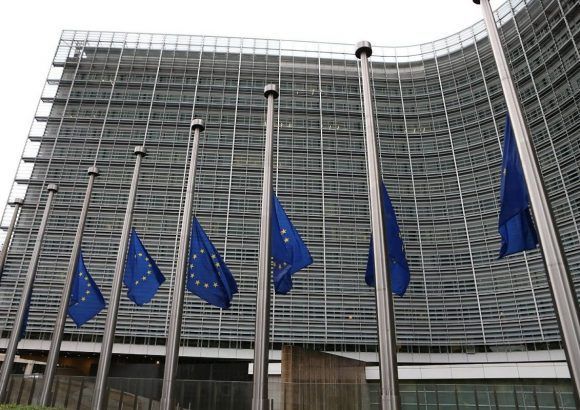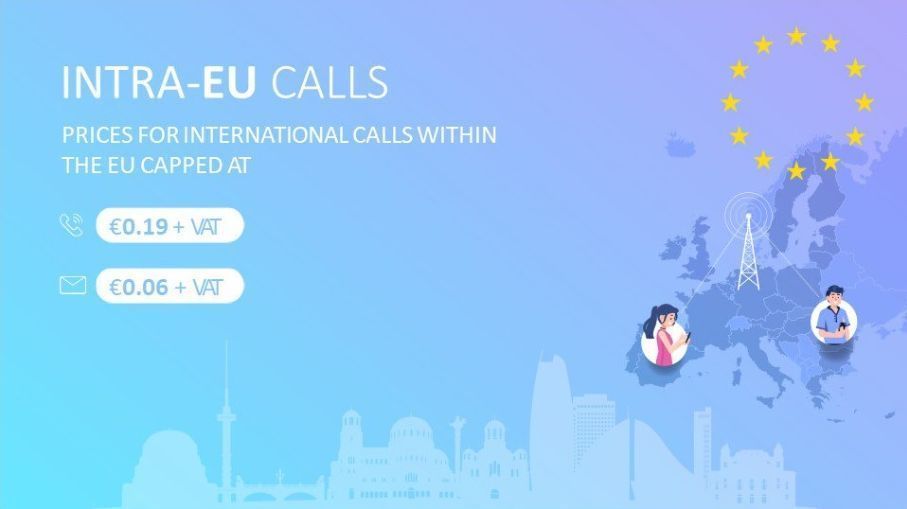Commission: EU-wide International Calls and SMS Getting Cheaper
The European Commission announced on Tuesday, that it had introduced caps at 19 cents per minute and 6 cents per SMS on phone calls via landline and mobile phone or SMS within the EU.
The new pricing policy, which goes into effect on May 15, does not include VAT, which varies depending on the EU states of the calling operator anywhere from 17 percent to 27 percent.
The Commission also released Q&A with regard to the new rates:
– What is the difference between international calls and roaming?
 Roaming is when you are using your mobile phone while travelling in another country. People can use their mobiles abroad in the EU at no extra cost.
Roaming is when you are using your mobile phone while travelling in another country. People can use their mobiles abroad in the EU at no extra cost.
This applies to any calls, SMS as well as data use: the tariffs that apply remain the same as when the person is home. Beyond a fair use of roaming services at domestic price, roaming surcharges may be applied to prevent abusive usage of roaming services. More information on the exact conditions is available here.
International calls and SMS (so-called intra-EU communications) means calling a phone number of another EU country with domestic mobile or fixed phone while consumers are at home. Note that as soon as they are abroad, their calls are roaming calls, subject to the EU roaming rules, which means charged as a domestic phone call, even if they call a phone number of another Member State.
– Where do the new rules apply?
In all 28 EU countries: Austria, Belgium, Bulgaria, Croatia, Cyprus, Czechia, Denmark, Estonia, Finland, France, Germany, Greece, Hungary, Ireland, Italy, Latvia, Lithuania, Luxembourg, Malta, the Netherlands, Poland, Portugal, Romania, Slovenia, Slovakia, Spain, Sweden and the United Kingdom.
For calls and SMS originating in Norway, Iceland and Liechtenstein the rules will be applicable as soon as it is incorporated in the European Economic Area agreement.
– Does the rule apply to everybody?
The maximum price is capped only for personal usage, ie for private customers. Business customers are excluded from this price regulation, given that several providers have special offers particularly attractive for business customers.
– Are there any limits to usage of minutes or SMS with the lower prices?
No, there are no limits.
– Will EU citizens be notified on May 15 of the new prices? If so, how?
 Yes. Operators offering their services in the EU are obliged to notify. The operators will choose how they contact their customers.
Yes. Operators offering their services in the EU are obliged to notify. The operators will choose how they contact their customers.
– Are the price caps automatically applicable or do citizens have to do something to benefit from the lower prices?
Operators must offer price caps for international calls and SMS by default. Consumers should therefore automatically benefit from the new tariff once it enters into force, without any further action on their part.
– What will happen in the case of bundle services? How will the new price caps affect these offers?
If consumers have a bundle that includes a fixed volume of international calls and/or SMS in the EU for a set price, then the price cap is not applicable.
However, if consumers consider that their bundle no longer offers the best value for money following the entry into force of this price cap, they can always switch to a per-minute tariff for intra-EU calls and SMS.
– Are there any exceptions to these caps?
 Under exceptional circumstances, the National Regulatory Authorities for electronic communications may grant an operator a derogation from the price regulation. The derogation is exceptional and concerns operators that are specialised in international calls, or have a very low profit margin on domestic prices.
Under exceptional circumstances, the National Regulatory Authorities for electronic communications may grant an operator a derogation from the price regulation. The derogation is exceptional and concerns operators that are specialised in international calls, or have a very low profit margin on domestic prices.
The national regulator in charge of telecoms should have a list of providers, which may be granted the exception.
– What benefits does the overall EU telecoms reform bring to Europeans?
The price caps for calls within EU are part of the EU-wide overhaul of telecoms rules to strengthen coordination of electronic communications and enhance the role of the Body of European Regulators for Electronic Communications (BEREC).






